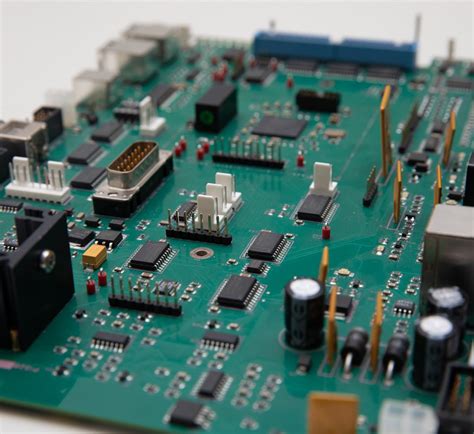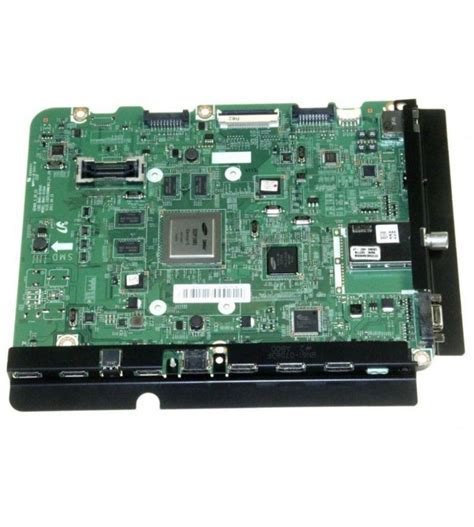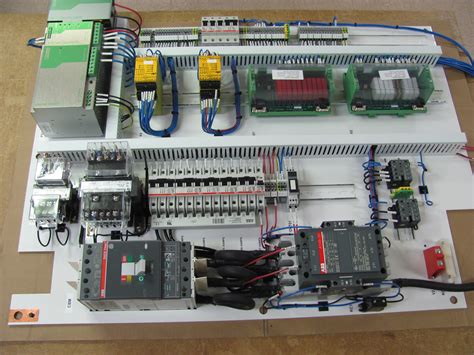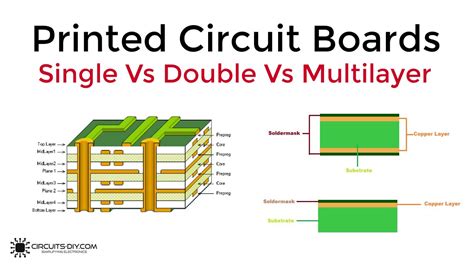Precision Manufacturing Solutions with Electronic Assembly Services L
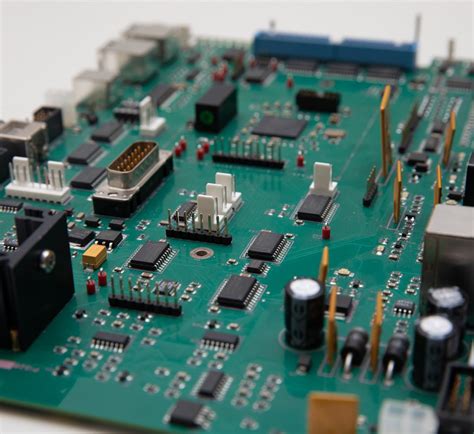
Key Takeaway
Modern manufacturing demands require PCB assembly solutions that balance technical precision with operational scalability. Electronic Assembly Services Ltd. delivers PCBA (Printed Circuit Board Assembly) systems integrating surface-mount technology (SMT) and through-hole assembly, ensuring compliance with ISO 13485 (medical) and AS9100D (aerospace) certifications.
| Industry | Critical Requirements | PCBA Solutions |
|---|---|---|
| Aerospace | High thermal resistance, shockproof | 20-layer multilayer boards |
| Medical Devices | Biocompatible materials, miniaturization | Micro-PCB assembly (<0.5mm) |
| Consumer Tech | High-speed signal integrity | HDI (High-Density Interconnect) |
By leveraging automated optical inspection (AOI) and 3D solder paste monitoring, manufacturers achieve defect rates below 50ppm across PCB assembly workflows. For prototyping, turnkey services reduce lead times by 40% through concurrent design-for-manufacturing (DFM) analysis. In full-scale production, IoT-enabled traceability systems track component-level data, aligning with Industry 4.0 standards. This dual-phase approach ensures PCBA outputs meet both functional specifications and lifecycle durability benchmarks.

Advanced Electronic Assembly Solutions for Modern Industries
Modern industries demand PCB assembly and PCBA solutions that balance precision, scalability, and compliance with evolving technical requirements. Specialized providers leverage automated optical inspection (AOI) systems and 3D solder paste inspection (SPI) technologies to ensure micron-level accuracy in component placement, particularly for high-density interconnect (HDI) boards. This approach minimizes defects in applications ranging from aerospace avionics to implantable medical devices, where reliability is non-negotiable.
The integration of flexible manufacturing cells allows seamless transitions between prototyping and full-scale production, addressing urgent timelines without compromising quality. For instance, automotive sensor arrays and 5G telecommunications infrastructure benefit from mixed-technology assembly—combining surface-mount (SMT) and through-hole (THT) processes—to meet diverse thermal and mechanical demands.
Critical to success is adherence to ISO 13485 for medical devices and IPC-A-610 Class 3 standards for aerospace, ensuring traceability across every PCBA lifecycle stage. Advanced providers also employ AI-driven predictive maintenance on pick-and-place systems, reducing downtime by up to 30% while maintaining sub-15ppm defect rates. Such capabilities position electronic assembly services as strategic partners in scaling innovation across industries.
End-to-End Manufacturing Services in Aerospace & Medical
The aerospace and medical device sectors demand manufacturing solutions that combine precision, traceability, and regulatory compliance. Specialized PCB assembly (PCBA) workflows are engineered to meet these rigorous requirements, integrating advanced technologies such as automated optical inspection (AOI) and X-ray testing. For aerospace applications, high-reliability PCBAs undergo stringent environmental stress screening to ensure performance under extreme temperatures and vibrations. In medical manufacturing, biocompatible materials and cleanroom-compliant processes are prioritized, aligning with ISO 13485 standards for life-critical systems.
End-to-end services span from design-for-manufacturability reviews to final functional testing, ensuring seamless transitions from prototyping to full-scale production. For instance, aerospace clients benefit from rigid-flex PCB assemblies that withstand mechanical strain in compact avionics, while medical innovators leverage high-density interconnect (HDI) boards for miniaturized implantable devices. Cross-industry expertise allows manufacturers to address unique challenges, such as electromagnetic interference (EMI) shielding in surgical equipment or hermetic sealing for satellite components.
By unifying PCB assembly expertise with industry-specific certifications, providers deliver solutions that harmonize speed-to-market with uncompromising quality—a critical balance for sectors where reliability directly impacts safety and operational success.
High-Quality PCB Assembly for Consumer Electronics
The consumer electronics sector demands PCB assembly solutions that balance miniaturization, reliability, and cost-efficiency. Advanced PCBA processes enable the production of compact, high-performance circuit boards tailored for smartphones, wearables, and IoT devices. By leveraging automated surface-mount technology (SMT) and precision soldering techniques, manufacturers achieve consistent electrical performance even in ultra-thin designs.
Tip: Opt for PCB assembly partners that implement automated optical inspection (AOI) to ensure defect rates below 0.1% – critical for high-volume consumer product batches.
Modern PCBA workflows integrate rigorous testing protocols, including in-circuit testing (ICT) and functional validation, to meet the rapid lifecycle requirements of consumer markets. The use of lead-free solder alloys and high-density interconnect (HDI) substrates further enhances durability while complying with global environmental regulations. For brands prioritizing speed-to-market, turnkey assembly services streamline component sourcing, prototyping, and final production, reducing lead times by up to 40% compared to traditional methods.
As consumer expectations evolve, manufacturers are adopting flexible printed circuit boards (FPCBs) and rigid-flex designs to support innovative product form factors. This adaptability ensures PCB assembly remains a cornerstone in developing next-generation electronics that merge aesthetics with functionality.

Streamlined Prototyping to Full-Scale Production Processes
Modern electronics manufacturing demands seamless transitions from concept validation to market-ready products. PCB assembly (PCBA) providers achieve this through integrated workflows that bridge rapid prototyping and high-volume production. By leveraging automated design-for-manufacturing (DFM) analysis and modular assembly lines, companies like Electronic Assembly Services Ltd. ensure design iterations are optimized for scalability during the prototyping phase. This approach minimizes rework risks while maintaining compliance with industry-specific certifications such as ISO 13485 for medical devices.
Advanced PCBA solutions employ synchronized data pipelines, enabling real-time adjustments between prototype validation and full-scale manufacturing. Multi-stage testing protocols—including in-circuit (ICT) and functional testing—are embedded at both phases to guarantee consistent performance across batches. For aerospace and consumer electronics sectors, this dual-phase strategy addresses thermal management and signal integrity challenges early, preventing costly delays during scale-up.
The integration of flexible manufacturing cells allows parallel processing of prototype batches and production orders without compromising lead times. This agility is particularly critical for industries requiring fast-track product launches, where synchronized PCB assembly workflows reduce time-to-market by 30-40% compared to traditional segmented approaches.
Cutting-Edge Technologies in Electronic Component Assembly
The evolution of electronic component assembly hinges on leveraging advanced technologies to address growing demands for precision and efficiency. Modern PCB assembly processes now integrate automated robotic systems capable of placing microscopic components with sub-micron accuracy, ensuring consistent quality in PCBA production. Innovations like AI-driven defect detection utilize machine learning algorithms to analyze solder joints and component alignment in real time, reducing error rates by over 40% compared to manual inspections.
Another breakthrough lies in the adoption of IoT-enabled manufacturing lines, which synchronize data across prototyping and full-scale production phases. This connectivity allows for dynamic adjustments in PCB assembly workflows, optimizing material usage and minimizing downtime. For high-density interconnect (HDI) boards, laser direct imaging (LDI) technology enhances trace resolution, critical for aerospace and medical devices requiring ultra-compact designs.
Additionally, advancements in additive manufacturing are reshaping PCBA prototyping, enabling rapid iteration of complex multilayer boards without traditional tooling constraints. Paired with environmentally conscious practices such as lead-free soldering and halogen-free substrates, these technologies align with global sustainability standards while maintaining rigorous performance benchmarks. By merging automation, data analytics, and precision engineering, manufacturers deliver solutions that meet the exacting needs of industries where reliability is non-negotiable.
Meeting Rigorous Standards in Precision Electronics Manufacturing
In industries where component failure carries significant risks—such as aerospace, medical devices, and mission-critical infrastructure—PCB assembly processes must adhere to exacting quality benchmarks. Advanced PCBA providers implement zero-defect manufacturing protocols, combining IPC-A-610/620 compliance with in-line automated optical inspection (AOI) and X-ray verification systems. These technologies detect micron-level soldering anomalies or substrate irregularities that could compromise long-term reliability. For high-reliability applications, thermal cycling tests and accelerated life testing simulate decades of operational stress within controlled environments, ensuring assemblies withstand extreme temperatures, vibrations, and humidity.
Material selection further reinforces quality outcomes, with lead-free solders and high-Tg laminates chosen for their performance under demanding conditions. Cross-functional engineering teams collaborate to align PCB assembly workflows with ISO 13485 (medical) or AS9100D (aerospace) certification requirements, embedding traceability through laser-marked component tracking and blockchain-enabled documentation systems. This multi-layered approach to precision manufacturing not only meets but often exceeds industry-specific compliance thresholds, providing OEMs with auditable proof of conformity for regulatory submissions. By integrating PCBA expertise with rigorous quality control frameworks, manufacturers deliver electronics that perform consistently in environments where failure is not an option.

Customized Electronic Assembly for Diverse Industry Needs
Modern manufacturing demands adaptable solutions that align with the unique requirements of varied sectors. PCB assembly and PCBA (Printed Circuit Board Assembly) technologies form the backbone of tailored electronic manufacturing, enabling companies to address specific challenges in industries ranging from automotive to IoT and industrial automation. By leveraging modular design frameworks, manufacturers can adjust component layouts, material selections, and testing protocols to match performance thresholds or environmental constraints. For instance, automotive applications may prioritize heat-resistant substrates and vibration-proof soldering, while medical devices demand ultra-precise trace routing for miniaturized components.
Advanced PCBA workflows integrate seamlessly with secondary processes like conformal coating or box-build assembly, ensuring end-to-end compatibility with complex systems. This flexibility extends to scalability—whether supporting low-volume, high-mix prototyping or ramping up to high-volume production. Rigorous validation protocols further guarantee that customized assemblies meet industry-specific certifications, such as ISO 13485 for medical devices or AEC-Q100 for automotive electronics. By balancing technical precision with operational agility, tailored electronic assembly bridges the gap between standardized manufacturing and niche application demands.
Innovative Manufacturing Approaches in Electronics Assembly
The evolution of PCB assembly and PCBA processes has been driven by the integration of automation, artificial intelligence, and modular design principles. Modern facilities now deploy robotic soldering systems paired with AI-driven optical inspection tools, enabling micron-level accuracy in component placement while reducing human error. For high-mix, low-volume production—common in aerospace and medical device manufacturing—flexible surface-mount technology (SMT) lines allow rapid reconfiguration to accommodate diverse board geometries and material specifications.
A growing emphasis on scalable traceability has led to the adoption of blockchain-enabled supply chain tracking, particularly critical for industries requiring compliance with ISO 13485 or AS9100 standards. Advanced PCBA workflows now incorporate real-time thermal profiling during reflow soldering, dynamically adjusting oven zones to prevent component stress in lead-free assemblies. Hybrid manufacturing models combine traditional PCB assembly techniques with additive manufacturing, using conductive inks to print complex circuitry on 3D-printed substrates—a breakthrough for compact wearable devices and IoT applications.
These innovations are further enhanced by digital twin simulations, which virtually validate assembly processes before physical production begins, slashing prototyping iteration times by up to 40%. As sustainability pressures mount, closed-loop material recovery systems are being integrated into PCBA lines, reclaiming precious metals from production waste without compromising throughput speeds.
Conclu
The evolution of PCB assembly and PCBA technologies underscores the critical role of precision manufacturing in meeting the demands of modern industries. By integrating advanced automation and rigorous quality control protocols, manufacturers ensure that electronic components meet exacting standards across aerospace, medical, and consumer electronics applications. The seamless transition from prototyping to full-scale production highlights the adaptability of PCB assembly processes, enabling rapid iteration without compromising reliability.
As industries increasingly prioritize miniaturization and energy efficiency, PCBA solutions are evolving to incorporate high-density interconnect (HDI) designs and surface-mount technology (SMT), which enhance performance while reducing footprint. This progression not only addresses current market needs but also anticipates future challenges in scalability and sustainability.
Ultimately, the success of electronic manufacturing hinges on balancing innovation with consistency. By leveraging PCB assembly expertise and data-driven process optimization, providers deliver solutions that align with both technical specifications and cost-efficiency targets. This holistic approach ensures that end products maintain compliance with international certifications while supporting the dynamic requirements of global supply chains.

FAQ
What industries benefit most from advanced PCB assembly solutions?
Aerospace, medical devices, and consumer electronics industries rely heavily on PCBA services due to their demand for high-reliability components and adherence to rigorous quality standards. These sectors require precision in PCB assembly for mission-critical applications, from avionics systems to life-saving medical equipment.
How does prototyping integrate with full-scale production workflows?
Modern PCBA providers streamline prototyping through automated design validation and rapid iteration processes, ensuring seamless transition to mass production. This approach minimizes time-to-market while maintaining consistent quality across all manufacturing stages.
What technologies ensure quality in electronic assembly services?
Advanced optical inspection (AOI), X-ray verification, and automated soldering systems form the backbone of reliable PCB assembly. These technologies enable microscopic defect detection and process repeatability, crucial for aerospace-grade and medical-device applications.
Can customized assembly accommodate specialized industry requirements?
Yes, leading PCBA specialists offer tailored solutions for low-volume/high-mix production, including conformal coating for harsh environments and specialized testing protocols. This flexibility supports diverse needs from industrial IoT devices to compact consumer electronics.
Explore Advanced PCB Assembly Solutions Today
For comprehensive PCB assembly capabilities that bridge prototyping to full-scale manufacturing, please click here to discover how our certified processes align with your project’s technical and compliance requirements.

